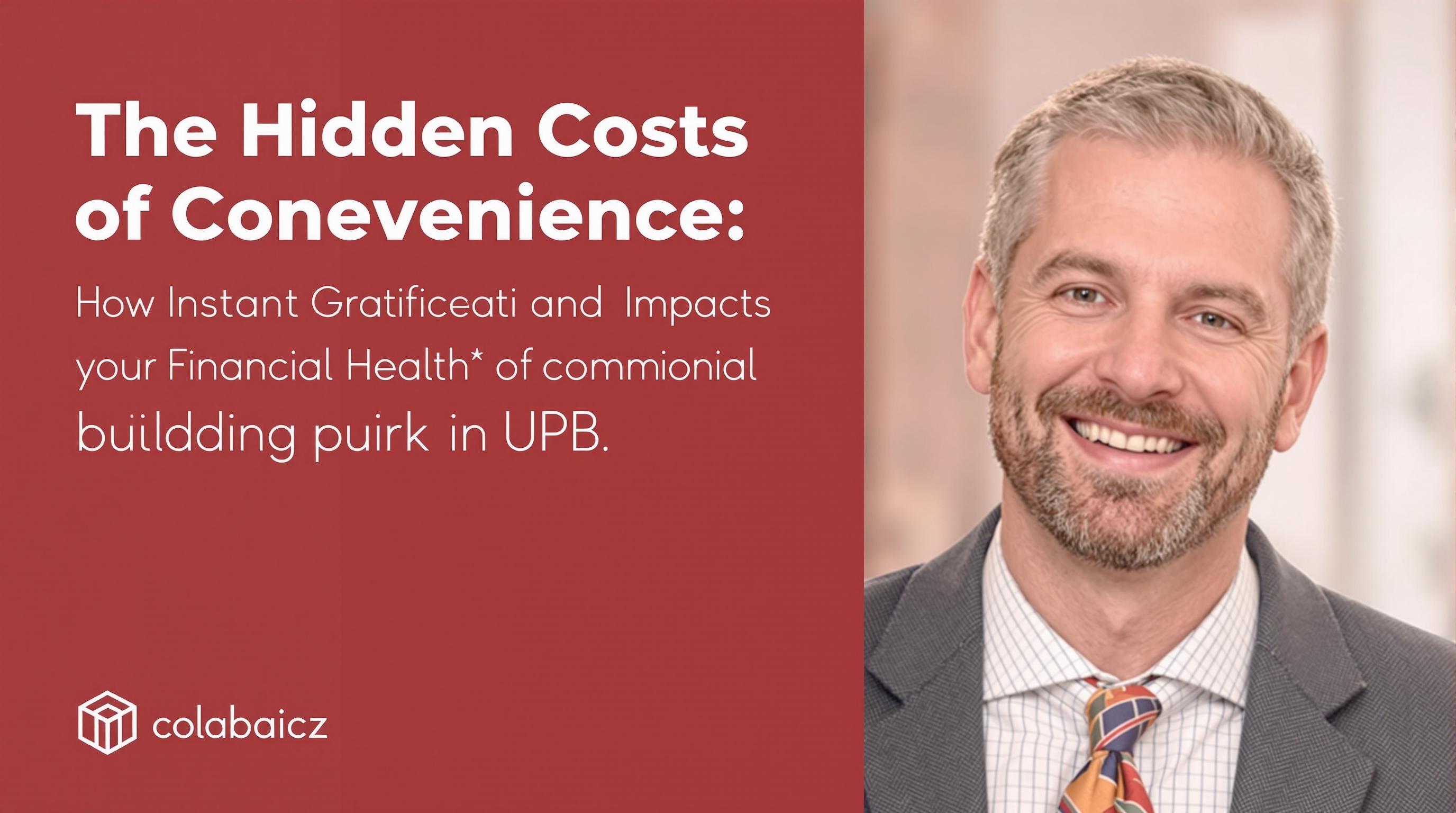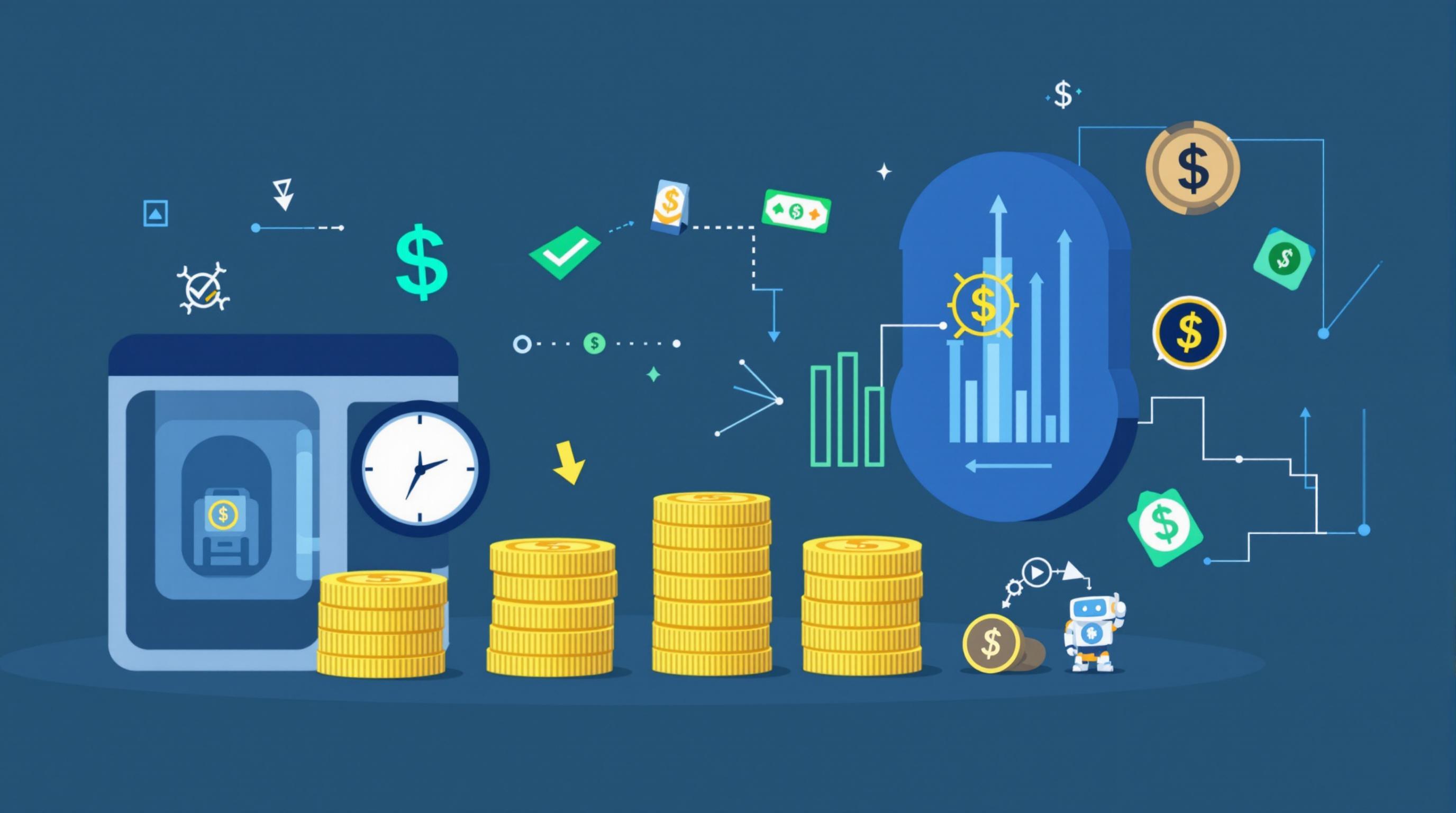Related Articles
- When Ancient Trade Routes Resurface: Unexpected Lessons for Modern Commerce and Global Economic Resilience
- When Artifacts Become Currencies: The Intriguing Trade Between Antiquities and Emerging Markets
- Beyond Borders: Unconventional Partnerships Transforming Trade Strategies in the Age of Globalization
- The Rise of Shadow Economies: How Informal Trade Networks are Disrupting Global Market Structures
- Cryptocurrency and Society: Understanding the Hidden Costs of Digital Assets on Community Well-Being
- The Surprising Role of Cultural Narratives in Shaping Investment Choices and Financial Preferences
The Hidden Costs of Convenience: How Instant Gratification Impacts Your Financial Health and Wealth Building
The Hidden Costs of Convenience: How Instant Gratification Impacts Your Financial Health and Wealth Building
The allure of instant gratification leads many individuals to overlook the hidden costs associated with convenience, ultimately impacting their financial health and wealth-building abilities. In this article, we'll dissect how the drive for immediate results can undermine our long-term financial goals through engaging stories, revealing statistics, and insightful analysis.
The Instant Gratification Trap
Imagine a 25-year-old named Sarah who craves the latest smartphone. With a click of a button, she orders it online, opting for expedited shipping and the latest payment plan. Initially, this feels great; she has the newest gadget in hand within two days, instantly fulfilling her desire. But wait! That shiny new device comes with a hidden price, one not reflected on the checkout page.
Statistics Behind Instant Gratification
Studies show that nearly 70% of Americans are living paycheck to paycheck, with the majority affirming that this holds them back from achieving their financial goals (CNBC, 2022). A significant contributor to this statistic is the overwhelming desire for instant gratification. People are inclined to spend on immediate pleasures rather than invest in long-term financial health, leading them into debt and financial instability.
Understanding Convenience Fees
Every time you swipe your credit card for that morning coffee or binge-watch the latest series with a premium streaming service, you might be overlooking what’s known as “convenience fees.” These are the subtle charges that come with the lifestyle of ease, and they can add up quickly. A simple calculation shows that if you spend $5 a day on coffee, that totals $1,825 a year. Now, consider how much you could have saved or invested with that money instead.
A Personal Story: The Cost of Small Choices
Meet Tom, a 38-year-old entrepreneur. Tom was once a heavy user of food delivery apps. He loved the convenience of getting gourmet meals delivered right to his door. One day, he decided to track his spending over a month. To his shock, he realized he had spent $600 on food delivery. Startled by the number, he decided to prepare meals at home instead — a change that not only saved him money but also led him to invest $5,000 into his business.
Delayed Gratification: The Key to Wealth Building
Denise, a personal finance coach, praises the power of delayed gratification. “It’s tough to resist the urge to buy now,” she notes. “But when you choose to save instead, you build a financial fortress that can sustain you in tough times.” By focusing on saving and investing your money, especially during your twenties and thirties, you open the door to compound growth. For example, if you invest just $200 a month starting at age 25, by age 65, you could have nearly $1 million, assuming a 7% average annual return (Investment company data).
The Impact of Social Media
In the era of social media influencers, instant gratification is amplified. Platforms like Instagram and TikTok expose us to a barrage of lifestyle choices showcasing luxury goods, gourmet meals, and extravagant vacations. This heavy curation of envy can create an overwhelming desire to keep up with peers, leading many to overspend. A survey by Bankrate revealed that more than 50% of millennials reported feeling pressure from social media to spend beyond their means, thus placing their financial health at risk.
Learning from the Financially Savvy
It might seem counterintuitive, but some of the wealthiest individuals advocate for waiting and saving. Warren Buffet famously said, “The stock market is designed to transfer money from the Active to the Patient.” This profound statement encapsulates the impact of patience and delayed gratification on wealth building. The financial habits of the rich teach us that wealth is not merely about earning but also about spending wisely.
Case Study: The Millionaire Next Door
In the book "The Millionaire Next Door," authors Thomas J. Stanley and William D. Danko reveal that many millionaires live frugally and prioritize investment over immediate purchases. They often drive used cars, live in modest homes, and invest heavily in their futures. This lifestyle allows them to accumulate wealth while avoiding the temptation of instant gratification that often plagues their less financially savvy counterparts.
The Psychological Aspect
Understanding the psychological mechanisms behind our spending habits is crucial. Cognitive biases, such as the “availability heuristic,” lead us to place more value on immediate rewards rather than long-term benefits. A study published in the Journal of Consumer Research indicated that when people are faced with a choice between instant rewards and larger future rewards, most lean towards the instant gratification.
Creating an Action Plan
So, how do you combat the lure of convenience and instant satisfaction? Here’s a simple step-by-step action plan:
- Budgeting: Create a monthly budget to allocate funds towards essential spending, savings, and discretionary spending.
- Set long-term goals: Identify and write down your financial goals. This could include saving for a home, retirement, or a luxurious vacation.
- Automate savings: Set up automatic transfers to your savings account or retirement fund, ensuring that saving becomes a priority, not an afterthought.
- Mindful spending: Before making a purchase, ask yourself if it aligns with your long-term goals. The pause can help you assess if that instant gratification is worth sacrificing future well-being.
- Invest in experiences: Spend on meaningful experiences rather than material possessions. Research shows that experiences lead to greater happiness over time compared to buying items.
Humor: The Price of a Latte
Let's take a light-hearted detour for a moment. Ever heard about the guy who calculated how many years he’d need to work just to pay for his daily Starbucks latte? Well, he didn’t so much ‘wake up’ as he did ‘wake up and question his life choices!’ Turns out, at $5 a day, that latte was costing him a whole lot more than a caffeine buzz; by 65, he could have bought himself a luxury car instead. Lesson learned: coffee can be a bitter expense in the long run.
Status Symbols and Their Costs
There’s no denying that social status plays a crucial role in the choices we make. Buying the latest gadgets, cars, or even designer clothing often satisfies an ego-driven need for approval from peers. But at what cost? A recent study indicated that the average American spends an additional $2,000 a year on status symbols compared to individuals who prioritize savings (Pew Research, 2023). Imagine if that money was invested instead? Some may find it hard to resist, but it’s necessary to reconsider these purchases.
A Better Alternative: Building Your Wealth
Let’s pivot back to practicality. Investing money into retirement plans or purchase of stocks instead of an expensive pair of shoes is not just a sacrifice; it’s an investment. Raising your financial literacy allows you to decipher which purchases hold value and which simply give a temporary high. Resources like Investopedia and financial literacy courses can equip you with the knowledge you need to thrive.
Conclusion: Shifting the Paradigm
In our fast-paced world, it’s easy to succumb to the temptations of instant gratification and convenience. However, understanding the hidden costs associated with these choices is essential to preserving our financial health. By embracing delayed gratification, reevaluating our spending habits, and making informed financial decisions, we can set the stage for a wealthier future. It's time to shift our perspective, prioritize our long-term well-being, and break free from the chains of convenience. As that famous saying goes, “Good things come to those who wait.” The wait might be challenging, but the rewards are undeniably worth it.
In the end, it’s your financial future at stake. So, the next time you consider a quick buy or a lavish experience, take a moment to think about what that choice could mean for your long-term financial goals. After all, instant gratification may feel good today, but a fulfilling financial life takes time, patience, and strategy — it’s a game of chess, not checkers!





